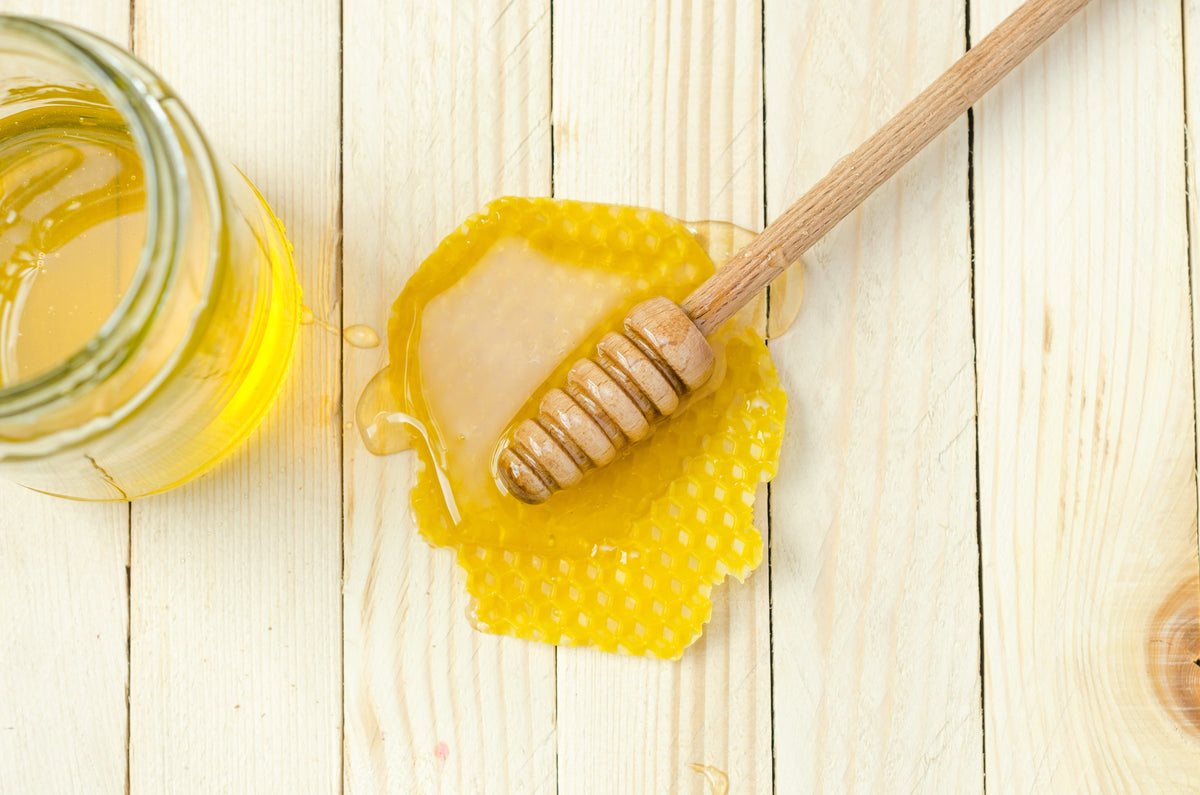7 Surprising Health Benefits of Honey

Who doesn't love honey?! Since ancient times, honey has been used as both a food and a medicine in order to improve our well-being and as a natural sweetener to many foods. Honey is the perfect substitute to white sugar, but it also serves several health benefits. You'll be surprised at just how beneficial this sweet and sticky nectar can be!
7 Surprising Health Benefits of Honey
Rich in Antioxidants
Antioxidants have been linked to lowered blood pressure and reduced risk of heart attacks, strokes and some types of cancer. It is even believed to promote eye health! High-quality raw honey contains many important antioxidants like organic acids and flavonoids and it's believed that the combination of these compounds gives honey its strong antioxidant power. Furthermore, studies show that buckwheat honey in particular, increases the antioxidant value of our blood!
Treats a Sore Threat and Cough
Did anyone else’s parents have them take a spoonful of honey every morning to fend off the common cold?? Well, we think they were on to something…
Coughing and sore throats are common problems for children, especially those with upper respiratory infections. This can affect sleep, motivation, and overall quality of life for the entire family. Plus, over-the-counter medications are not always effective and can have side effects. Interestingly, honey may be a better choice! And evidence proves it! One study found that honey actually worked better than two different and very common cough medications. A second study found that honey reduced cough symptoms and improved sleep significantly more than cough medicine. The next time your little one* wakes up with a cough or itchy throat, consider adding honey to a cup or warm tea or even on a small spoon for them to gulp down to start their day!
*Honey should not be given to children under one year of age.
Promotes Oral Health
Believe it or not, honey promotes oral health by fending off plaque build-up that can commonly lead to gingivitis and periodontal disease. In one study, Manuka honey chews resulted in greater reductions in plaque and gum bleeding than sugar-free chewing gum.
Considering sugary substances aren’t usually considered “helpful” when it comes to oral health, this is hard to believe at first. But, honey is so packed with antibacterial properties that research suggests it is more likely to fight off causes of tooth decay than cause cavities. Amazing!
Improves Digestive and Gut Health
Raw honey is considered a prebiotic food because it nurtures and promotes the good bacteria living in our gut. It may also be a remedy for indigestion and ulcers, which is how it’s been used in folk medicine for years. If you or your little ones experience leaky gut syndrome or common stomach problems, it may be worthwhile to do further research on incorporating raw honey into your diet. Start with small doses and go from there!
Heals Burns and Wounds
When applied to skin, honey can be an extremely effective treatment for burns, wounds, and many other skin conditions. Topical honey has been used to heal the skin since ancient Egypt and is still commonly used today! You'll often see honey as an ingredient in many natural skin-care treatments. A review of 26 studies on honey and wound care found honey most effective at healing partial-thickness burns and wounds that have become infected after surgery. It is believed that honey’s healing powers come from its antibacterial and anti-inflammatory properties as well as its strong ability to nourish surrounding tissue. Specifically, Manuka honey is considered especially effective for treating burn wounds.
Fights Free Radical Damage
Raw honey is packed with powerful antioxidants! These properties fight against cell damage and promote our health from the inside out. When harmful agents known as free radicals try to attack our cells through a process called “oxidative stress,” antioxidants forfeit an electron to keep our cells safe. Free radical damage is associated with aging and inflammatory disorders like cancer.
Luckily, honey helps to combat these attacks on our cells. One study found that a simple dollop of buckwheat honey increased in vitro antioxidant activity in healthy adults.
Combats Harmful Bacteria
For years, honey has been used to treat a variety of bacterial and fungal infections. It combats many types of bacteria, including salmonella and E. coli. During pollen synthesis, bees deposit peroxide, a natural antiseptic, into the honey they create. This in turn strengthens the antibacterial properties in the honey we eat and store on our shelves!
